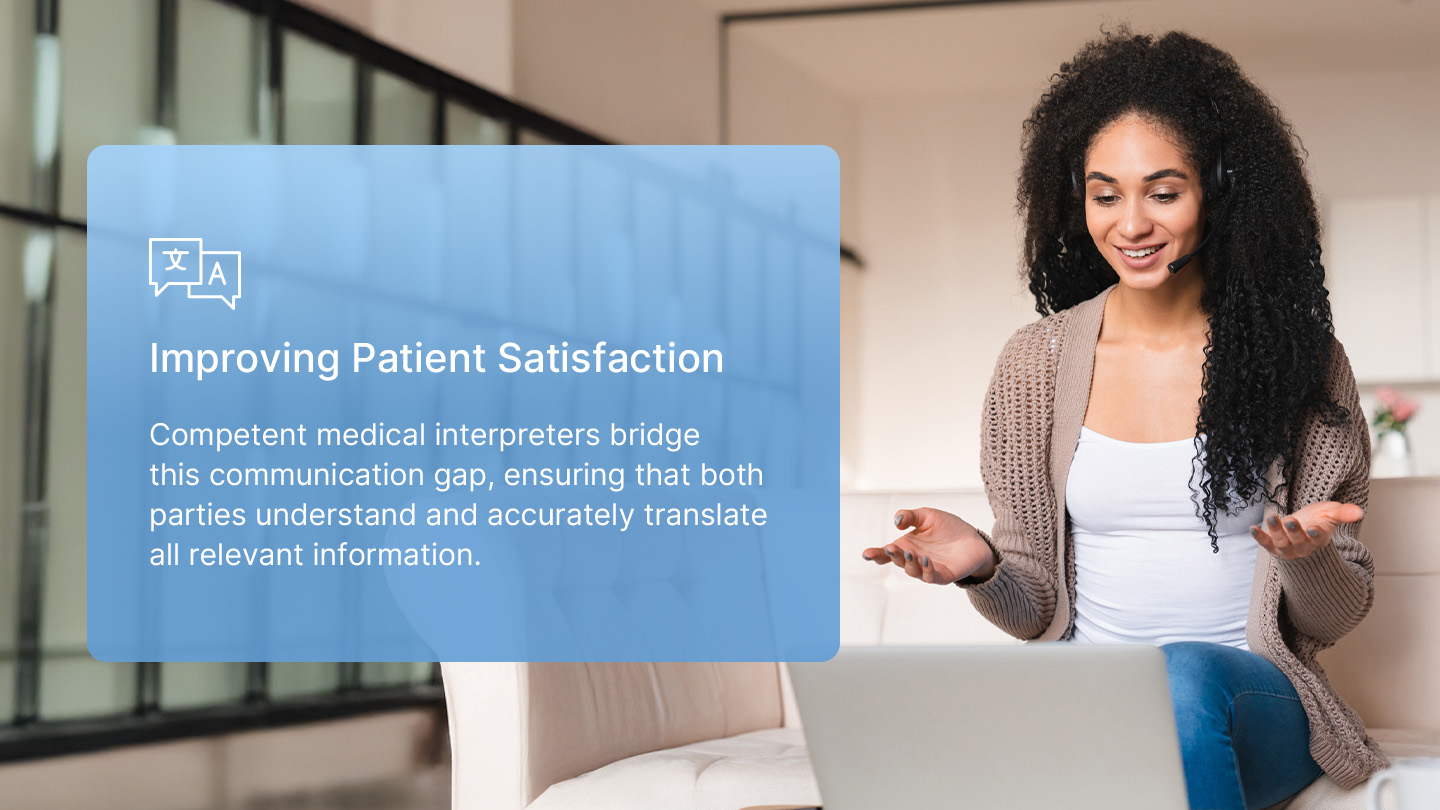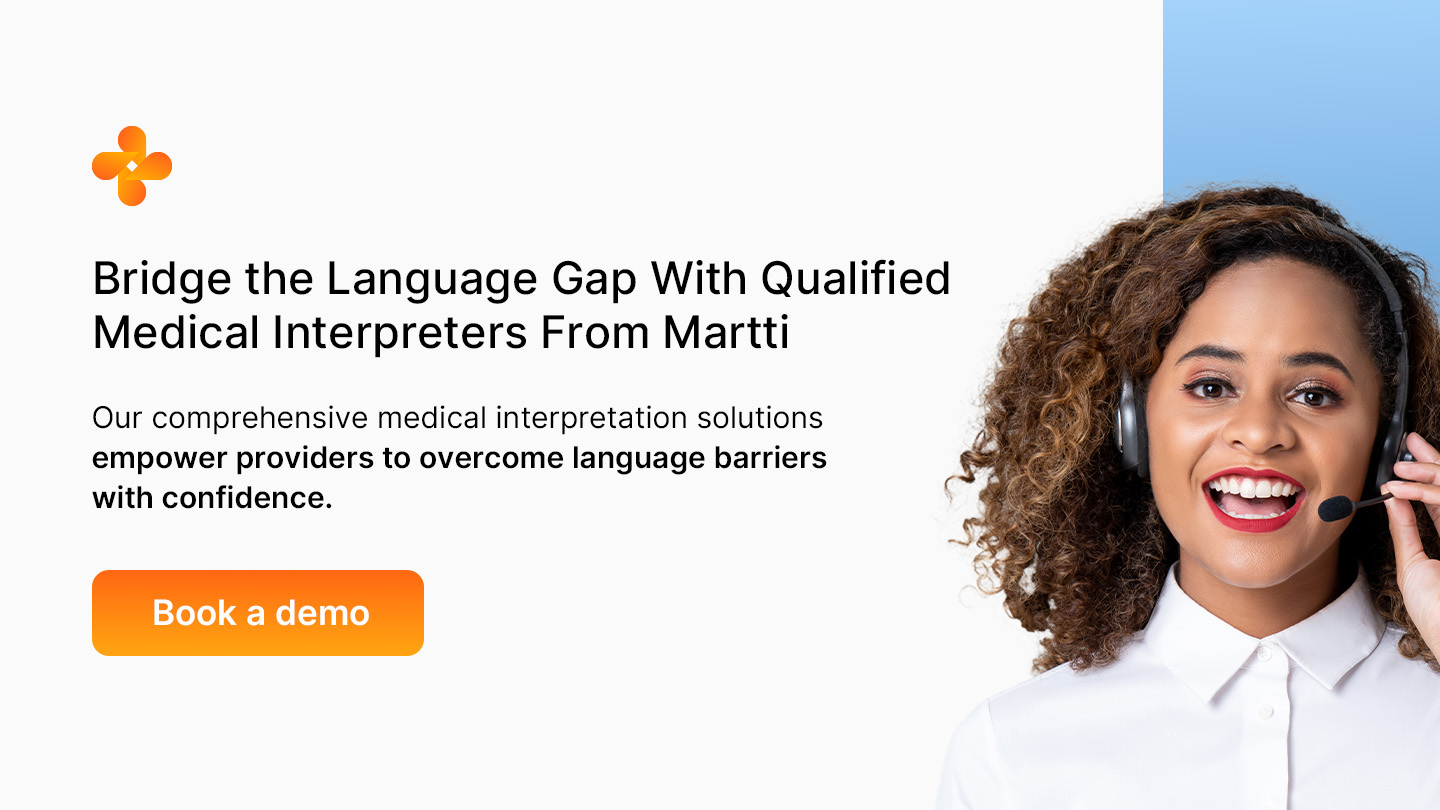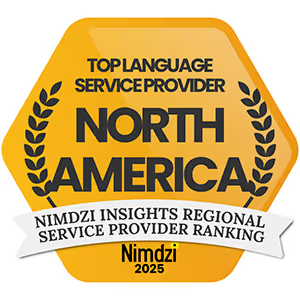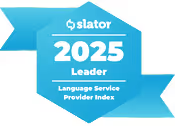Effective communication is the foundation of providing quality care to all patients. However, when patients and providers speak different languages, ensuring clear understanding can be a challenge.
Qualified medical or healthcare interpreters are key to overcoming language barriers. These professionals enable that needed communication when healthcare providers are trying to understand the patient’s medical history and symptoms, to diagnose, test and serve patients. It enables patients to communicate their needs and concerns.
In this article, we will explain the indispensable role of medical interpreters in an increasingly globalized society. Discover why working with interpreters in healthcare settings is good practice and often a legal necessity.
What Is a Qualified Medical Interpreter?
A qualified medical interpreter is a trained professional who supports the communicative autonomy of all by facilitating communication between patients and healthcare providers who do not use the same language. They provide interpreting in real time, relaying information between patients and healthcare professionals that allows each party to understand the other. These interpreters can work in various settings, including hospitals, clinics, medical offices, and telehealth.
There are three primary modalities of medical interpretation:
- In-person interpretation: The interpreter is physically present during the medical encounter to streamline face-to-face communication.
- Telephonic interpretation: Providers can connect with an interpreter via telephone. This allows for on-demand language support.
- Video remote interpretation (VRI): An interpreter joins the medical appointment through a secure video connection. This offers a more personal interaction than telephonic interpretation.
To be considered qualified, a medical interpreter must undergo extensive training and prove knowledge of medical terminology, cultural sensitivity and awareness, ethics, and modality-specific interpreting skills and protocols.
The Importance of Qualified Medical Interpreters
Professional medical interpreters are vital to ensuring equal access to quality healthcare for patients with limited English proficiency (LEP) and patients who are Deaf or hard of hearing. Here are some reasons why partnering with qualified interpreters is essential for any healthcare organization.
1. Improving Patient Satisfaction

Clear communication is the foundation of effective healthcare. When language barriers exist, patients may struggle to articulate their symptoms, concerns, and medical history accurately and healthcare providers may not be able to receive/understand this information. Similarly, providers may find it challenging to convey diagnoses, treatment plans, and care instructions.
Qualified medical interpreters bridge this communication gap, ensuring that both parties receive all information. This enhanced communication fosters a stronger patient-provider relationship, increasing patient satisfaction and better health outcomes.
2. Enhancing Patient Safety
Misunderstandings caused by language barriers can have serious consequences in healthcare settings. Lack of effective communication and inaccurate interpreting of symptoms, allergies, or medication instructions can lead to misdiagnosis, incorrect treatment, or adverse drug events.
Qualified medical interpreters are trained to precisely convey complex medical information, minimizing the risk of errors from miscommunication. By ensuring that patients and providers are on the same page, interpreters help safeguard patients, reducing the likelihood of costly and potentially harmful mistakes.
3. Facilitating Better Support for Diverse Populations
Healthcare organizations serve patients from diverse cultural backgrounds with unique beliefs, values, and traditions surrounding health and wellness. Qualified medical interpreters help healthcare providers navigate cultural nuances, through interpreting, that can impact healthcare interactions.
By promoting culturally sensitive care, interpreters help healthcare facilities build trust, improve patient engagement, and achieve better health outcomes for diverse populations.
4. Reducing Hospital Readmissions
When patients fully understand their health conditions, treatment options, and follow-up care plans, they are more likely to actively participate in their own healthcare journey. Medical interpreters enable LEP patients to ask questions, voice concerns, and make informed decisions about their care.
This increased engagement can reduce the readmission rate and improve long-term outcomes through the following:
- Better adherence to treatment regimens
- Regular follow-up appointments
- Proactive self-management of chronic conditions
5. Ensuring Legal Compliance
Providing language access services, including qualified medical interpreters, is a legal obligation for healthcare organizations that receive federal funding. Federal laws, such as Title VI of the Civil Rights Act, the Americans with Disabilities Act, and Section 1557 of the Affordable Care Act, require these organizations to provide meaningful access to care for LEP, Deaf and hard of hearing individuals.
Noncompliance with these regulations can result in penalties, legal action, and damage to an organization's reputation. Healthcare facilities demonstrate their commitment to equitable care and ensure they meet their legal responsibilities by partnering with qualified medical interpreters.
6. Allowing Healthcare Providers to Do Their Jobs
According to the Centers for Disease Control and Prevention, there are more than 22 million healthcare workers in the U.S. Lack of access or access to low quality language services limit the ability of millions of healthcare workers to do their job and increase the risk of errors in any step of the continuum of care. In certain areas of our country, that translates into not being able to serve and treat more than 25% of their patients.
Working with qualified healthcare interpreters not only allows millions of healthcare workers to do their jobs, but it also helps reduce risks of errors when collecting information, diagnosing, and treating patients.
7. Boosting Efficiency in Care Delivery
Linguistic barriers can lead to longer appointment times, unnecessary tests or procedures, and increased resource utilization. Working with professional medical interpreters helps streamline communication. It ensures that patients and providers can exchange information effectively and efficiently.
When language barriers are addressed proactively, healthcare teams can focus on delivering quality care without the delays and frustrations associated with communication breakdowns. The increased efficiency can improve patient flow, reduce wait times, and optimize the use of healthcare resources.
Why Trust Martti?
With over two decades of experience in the medical interpretation industry, Martti has gained unparalleled insight into the crucial role qualified medical interpreters play in healthcare. As a pioneer in video interpretation and integrated interpretation technology, we have witnessed firsthand the transformative power of effective communication in improving patient outcomes and experiences. Our language access experts understand the complex challenges healthcare organizations face when serving diverse patient populations.
Martti has built a reputation for delivering high-quality, reliable services that prioritize patient care and provider satisfaction. All our interpreters undergo rigorous training, testing, and quality assurance processes. This training ensures they have the knowledge, skills, and cultural awareness to facilitate accurate, meaningful communication in healthcare. Our commitment to improving healthcare communication is at the core of all that we do, and we are dedicated to being a trusted resource for the healthcare community.
Bridge the Language Gap with Qualified Medical Interpreters From Martti
Language barriers can prevent healthcare providers from offering safe and efficient care to all, hindering them from fulfilling their Hippocratic oath. Healthcare facilities that want to provide efficient, accurate, and compliant care to diverse communities must rely on qualified medical interpreters. This helps bridge language barriers, ensuring equitable access to quality care for all patients.
At Martti, we understand the critical role of effective communication in delivering exceptional patient care. Our comprehensive medical interpretation solutions empower providers to overcome language barriers with confidence. With our user-friendly technology, rapid connection times, and top-notch interpreters, your organization can improve language access and provide quality care.
Contact our team or book a demo today and take a step toward creating a healthcare environment where every patient heard and understood.

Linked sources:
- https://www.ncihc.org/certification
- https://www.certifiedmedicalinterpreters.org/getting-prepared
- https://cchicertification.org/healthcare-administrators/certification-info/
- https://www.lep.gov/interpretation
- https://www.hhs.gov/civil-rights/for-providers/laws-regulations-guidance/guidance-federal-financial-assistance-title-vi/index.html
- https://www.hhs.gov/sites/default/files/ocr-dcl-section-1557-language-access.pdf
- https://www.martti.io/integrations
- https://www.martti.io/case-studies
- https://www.martti.io/interpreters
- https://www.martti.io/demo
- https://www.martti.io/contact










